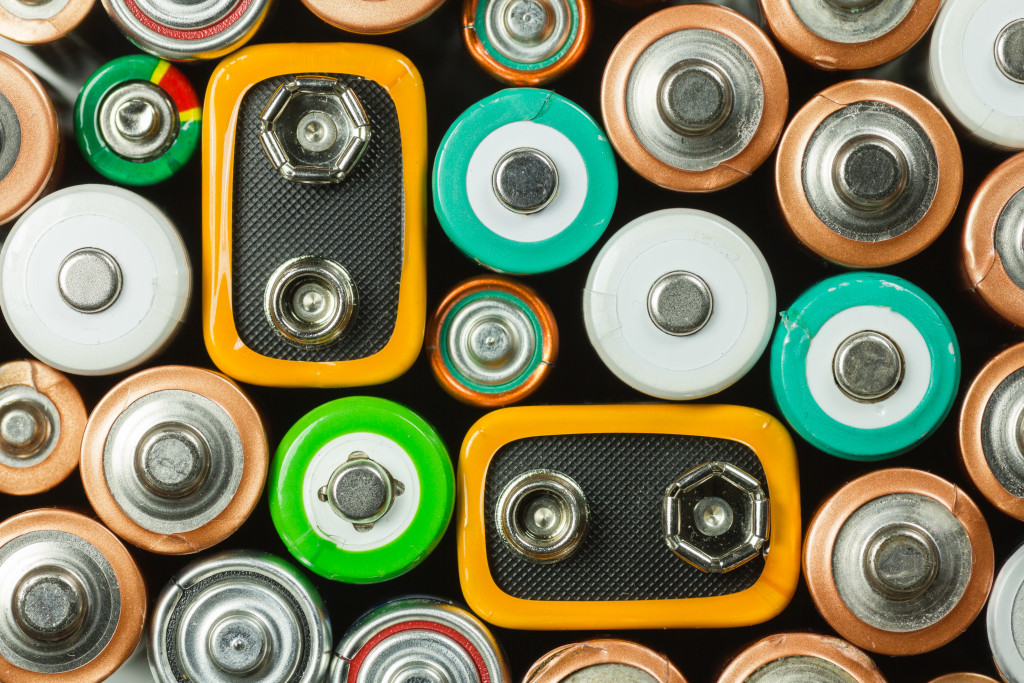Lithium-ion batteries are becoming increasingly commonplace in businesses, powering everything from laptops and cell phones to electric vehicles. As these batteries become more popular, it’s essential to understand the safety measures that should be taken when handling them. Here are a few tips for handling lithium-ion batteries safely in your business:
Read the manufacturer’s guidelines.
Before using any lithium-ion battery, read the manufacturer’s guidelines carefully. These guidelines will provide information about how to use the battery safely and effectively and what steps should be taken if something goes wrong. Not all batteries are created equal, so it’s essential to follow the specific instructions provided by each manufacturer.
Additionally, it’s essential to regularly check for updates on the manufacturer’s website, as they can change over time. You might also want to ask the manufacturer any questions before using the battery just to ensure that you’re taking all of the necessary safety precautions.
Keep batteries away from heat sources.
Lithium-ion batteries should never be exposed to temperatures above 60°C (140°F). If a battery is exposed to excessive heat, it can cause an increase in pressure inside of the battery and potentially lead to an explosion or fire hazard. To avoid this situation, keep lithium-ion batteries away from direct sunlight and other heat sources, such as stoves or ovens.
The best places to store lithium-ion batteries are in a cool, dry area away from direct sunlight or other heat sources. Places like a cabinet or drawer are usually ideal for keeping these batteries. You can also purchase special storage cases for lithium-ion batteries to ensure that they remain cool and dry.
Make sure they’re transported safely.
If you need to transport lithium-ion batteries from one location to another, make sure you use special battery transportation cases. These are designed to protect the batteries from excessive heat, vibration, and shock. Additionally, ensure that the batteries are correctly labeled and surrounded by non-conductive material (such as bubble wrap) when transporting them.
It’s also important to check the transport vehicle’s temperature before loading any lithium-ion batteries. If the temperature is too high, it’s best to wait until the vehicle has cooled down before moving forward with transportation.
Don’t overcharge batteries.

Overcharging a lithium-ion battery can cause damage to its internal components and reduce its lifespan over time. Ensure you monitor your devices while they are charging and unplug them once they have reached their full capacity—even if they are still connected to a power source—to avoid overcharging them accidentally.
Additionally, make sure not to leave your devices plugged in while they are not being used, as this can also lead to overcharging. You should also avoid leaving lithium-ion batteries unattended while they’re charging. It’s best to stick around and occasionally check on them to ensure everything goes as planned.
Be aware of your environment.
When using lithium-ion batteries, you must be aware of your surroundings and the potential risks. Make sure that the area where you’re using the battery is free from flammable materials and sources of heat. Additionally, check for any exposed metal pieces or wires, as they may cause a short circuit and lead to an accidental fire hazard.
It’s also important to be aware of any potential environmental sources that could affect the performance or safety of the battery. For example, extreme temperatures, humidity levels, and dust can all cause damage to lithium-ion batteries and should be avoided if possible.
Keep them out of reach of children.
If children or pets are in your home or workplace, it’s essential to keep lithium-ion batteries out of their reach. These batteries can be dangerous if not handled correctly and should only be used by adults aware of their potential risks. Ensure you store these batteries in a secure location inaccessible to children and pets.
Dispose of used batteries properly.
Once a lithium-ion battery has outlived its usefulness, make sure you dispose of it correctly according to local regulations and laws. Do not throw it into a standard trash bin, as this could result in an environmental hazard due to hazardous materials inside the battery cells, which need special disposal methods for safety reasons.
Instead, research proper disposal methods and contact your local government or waste management department to find out the best disposal method in your area. You can also look into reusing the battery by donating it to a non-profit organization that recycles used batteries for reuse.
Lithium-ion batteries are becoming increasingly popular in businesses today due to their high energy density and long lifespans—but with this popularity comes responsibility for safe handling practices! By following these essential tips for safely handling lithium-ion batteries, you can ensure that your business runs smoothly without risking any potential hazards associated with mishandling these powerful devices. With proper care and attention, your business will benefit from many years of reliable service from its lithium-ion-powered products!


